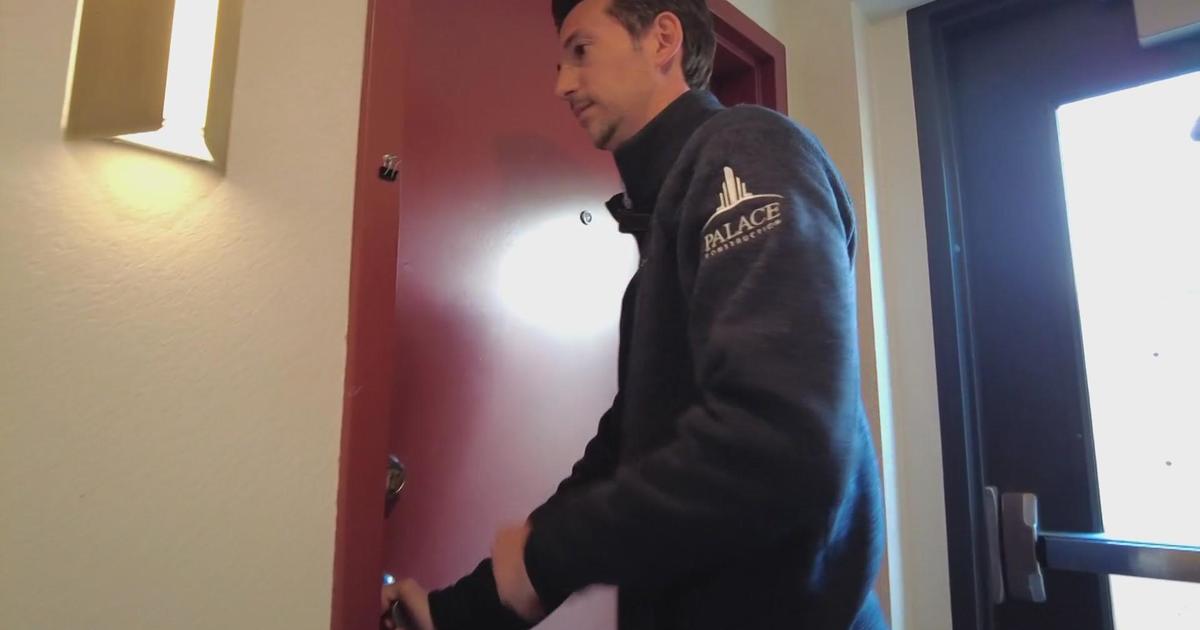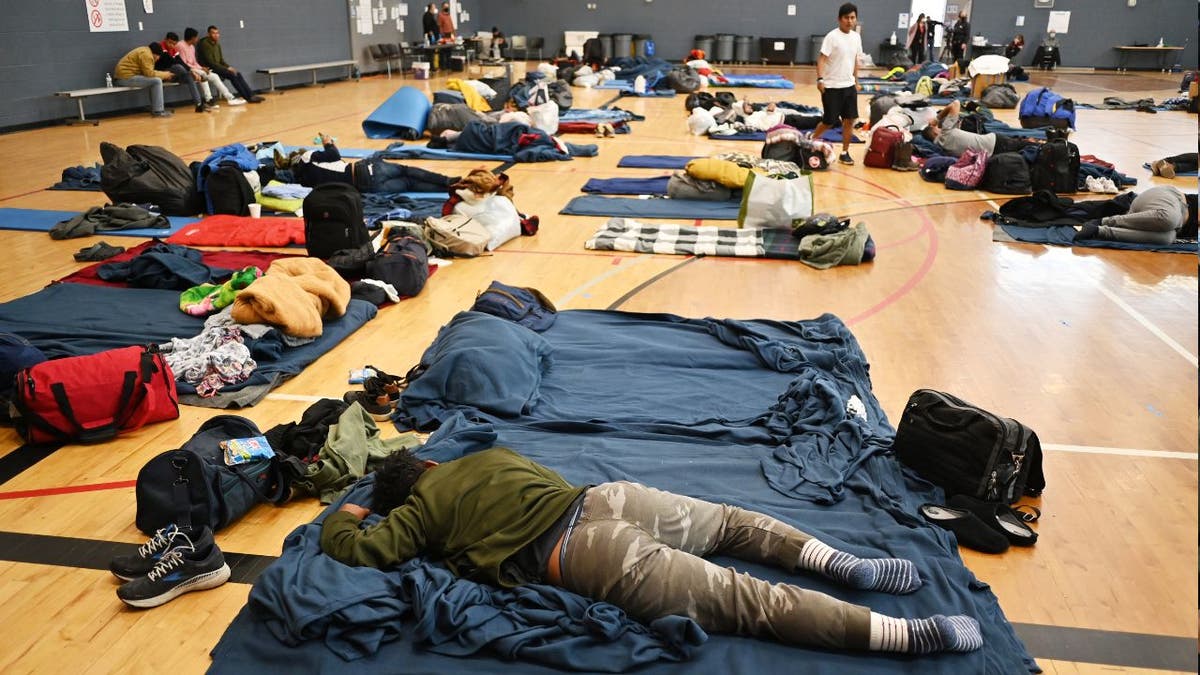Denver, CO
Editorial: Supreme Court justices keep Trump on the Colorado ballot, ignoring judicial restraint and originalism

We are not surprised that three of the justices on the Supreme Court who favor an evolving view of the Constitution would refuse to enforce a little-known provision of the 14th Amendment that has never before been employed during a presidential election.
While we disagree with their conclusion, the justices are right that there is no precedent and that allowing a state to banish a bad actor from the ballot just before the 2024 primary is an extreme action that could violate competing portions of the Constitution requiring that federal officers are responsive to all the people of America through a coordinated election process.
We are dismayed, however, that Supreme Court Justices John Roberts, Neil Gorsuch, Samuel Alito, Clarence Thomas, Brett Kavanaugh, and to a lesser extent Amy Coney Barrett, would so quickly and with so little explanation abandon their literal adherence to the plain words of the Constitution — a legal world-view known as “originalism.”
Not only did the originalists use historical context to decide what the 14th Amendment says, but they also undermined the entire amendment with a sweeping and far-reaching ruling that Coney Barrett criticized.
These justices stripped pregnant women of their rights without even acknowledging that women in states with abortion bans would die of sepsis while waiting for a fetal heart to stop. And yet, the justices spent a few sad paragraphs at the end of their ruling in Trump v. Anderson lamenting the harm that would occur were former President Donald Trump to be kicked off the ballot in Colorado.
“Nothing in the Constitution requires that we endure such chaos — arriving at any time or different times, up to and perhaps beyond the Inauguration,” write all of the conservative justices with the exception of Barrett, who wrote a short separate opinion. These men cry tears for an orderly election but couldn’t spare a moment for pregnant women suffering life-threatening health conditions.
Gorsuch, Alito and Thomas long ago swore it should not matter to good justices what bad outcomes might result from enforcing the Constitution as written, as long as they did not waver from the plain language. Roberts and Kavanaugh have never claimed to be true originalists but do lean in that direction.
Just how clear is the language of the Constitution when it comes to elected officials who have taken an oath of office and then supported a violent uprising against that very sacred document?
Amendment 14 Section 3 could not be clearer: “No person shall be a Senator or Representative in Congress, or elector of President and Vice-President, or hold any office, civil or military, under the United States, or under any State, who, having previously taken an oath … to support the Constitution of the United States, shall have engaged in insurrection or rebellion.”
Given Trump’s violent rhetoric, his aggressive orchestration of alternative electors following his clear loss in 2020 to President Joe Biden, and his subsequent efforts to prevent Congress from certifying the results as required in the Constitution, it is clear that Trump cannot “hold any office … under the United States.”
Rather than enforce this inconvenient truth in the Constitution, the justices have ruled that states cannot be the ones enforcing the 14th Amendment. They go so far as to rule that no one can enforce the 14th Amendment without legislation or other acts of Congress.
“This can hardly come as a surprise,” the majority quips as they shoot down the Colorado Supreme Court’s ruling that Trump’s actions following the November 2020 election have rendered him unqualified for federal office.
Indeed, it is a surprise that states cannot enforce the 14th Amendment.
Who do these justices think brought the case Brown v. Board of Education to their bench in 1954? It was not federal prosecutors, using federal legislation to enforce desegregatoin of schools in the south. It was citizens, children to be specific, seeking “equal protection” under the 14th Amendment. One of the cases went to state courts, others through federal courts, but never did the Supreme Court deny a case because the state’s courts had no authority to enforce the 14th Amendment. In fact, in some states and some small towns, the wait would have been long for an end to segregation in schools if the Supreme Court had required federal action on the issue.
The court ruled in Brown: “Therefore, we hold that the plaintiffs and others similarly situated for whom the actions have been brought are, by reason of the segregation complained of, deprived of the equal protection of the laws guaranteed by the Fourteenth Amendment.”
In a similar fashion, earnest Coloradans who were convinced that Trump’s insurrection attempt disqualified him from office sought redress in Colorado courts to enforce the 14th Amendment. We wrote in November that these Coloradans obviously had standing to bring this case and that the courts were the appropriate place to litigate whether Trump’s actions met the definition of “insurrection.”
The concurring opinion by Justices Sonia Sotomayor, Elena Kagan and Ketanji Brown Jackson made this exact argument while they dissented to the court’s reasoning: “Similarly, nothing else in the rest of the Fourteenth Amendment supports the majority’s view. Section 5 gives Congress the ‘power to enforce [the Amendment] by appropriate legislation.’ Remedial legislation of any kind, however, is not required. All the Reconstruction Amendments (including the due process and equal protection guarantees and prohibition of slavery) ‘are self-executing,’ meaning that they do not depend on legislation.”
Sotomayor, Kagan and Jackson are arguing for judicial restraint. This isn’t the first time, nor the last time we fear, that the rogue conservative majority on the court will rule as broadly as they possibly can in pursuit of their desired outcome.
That four justices ruled narrowly against employing a novel legal argument on a state-by-state basis to keep an insurrectionist from running for president is being considered a win by Trump’s supporters.
That five justices ruled that the 14th Amendment cannot be enforced by states without federal legislation is a loss for America, a loss for liberty and yet another sign that this court is spiraling out of control with no leadership, no discipline and a clear uptick in partisanship.
Sign up for Sound Off to get a weekly roundup of our columns, editorials and more.
To send a letter to the editor about this article, submit online or check out our guidelines for how to submit by email or mail.

Denver, CO
Colorado lawmakers end session with camaraderie, finalizing property tax reform — though not all is resolved

Unlike last year, the end of the Colorado legislative session Wednesday came with no fireworks — no protest walkouts, no intracaucus tensions boiling over into public, no last-minute implosions of keystone policy bills.
The final day of lawmakers’ nearly four-month session instead was dominated by noticeably brighter spirits as the General Assembly put the finishing touches on a slew of legislation that had dominated the final weeks. Notable bills touched on tax credits, property tax reform, gun restrictions and major land use changes that will shape the state for years and, supporters hope, decades to come.
Contentious housing bills that died or were vetoed last year were brought back, in varying forms, and passed. Lawmakers and the governor struck grand bargains to defuse ballot measures. And Democrats have settled into a now-familiar — if not consistently united — seat at the head of the legislative table.
Some of the last proposals to cross the finish line on the final day — which ended with the Senate’s adjournment just before 8 p.m., before dark — included an income tax credit for Colorado families with household incomes under $90,000, to cover up to two years of tuition and fees at in-state public universities, colleges and technical schools; a bipartisan bill to remake the public school finance system; a series of tax reforms that include a tax credit of up to $3,200 for dependent children, scaling down as family income increases, as children age and if state revenue growth slows down; and an income tax reduction of $450 million this year.
When the legislature convened in January, it was with a palpable sense of dread. Lawmakers, lobbyists and observers feared the session would reflect the angst and tension that marred last year’s regular and special meetings of the General Assembly.
Instead, the session unfolded largely as a casual observer would’ve expected.
Where tensions did rise, they did so mostly within standard — though at times still pointed — etiquette under the Gold Dome, even if public exchanges between lawmakers outside the building’s marble halls sometimes descended into personal attacks.
Sen. Dylan Roberts, speaking Wednesday about a compromise on a bill penalizing gun owners who don’t secure handguns left in vehicles, lamented “disrespectful” comments made in the House about an amendment from his chamber. But the Frisco Democrat ended on a simple request to “disagree better.”
Flare-ups still emerged. The House’s Democratic leadership implemented new protocols to limit what they considered offensive speech on the floor. Some House Republicans repeatedly castigated their Democratic colleagues on social media as supporting pedophiles and criminals, based on votes opposing various GOP-backed bills.
Those comments contributed to a tense meeting between Democratic lawmakers and their leadership last week, with legislators demanding that leaders do more to address attacks online.
But by the last day of the session on Wednesday, most of the session-defining measures had already been resolved — with largely perfunctory agreements and votes remaining.
The Senate and House had already hammered out differences on a bill supported by Gov. Jared Polis that, once signed, will promote denser development along transit corridors. They avoided the last-day drama of last year, when an omnibus land use bill died at the 11th hour because of irreconcilable differences between the chambers, both led by large Democratic majorities.
A proposal to ban the sale and transfer of certain high-powered, semiautomatic firearms — which had hung heavy over the final weeks amid Democratic division over how much to embrace the policy — was tabled peacefully on the penultimate day. Backers pledged to continue that fight in future years.
Meanwhile, a slew of other gun bills, some intended to improve enforcement of existing laws, passed against strong Republican opposition, but without extraordinary incidents.
Most of Wednesday was dominated by tributes to departing members, a steak cook-off in the House and the Capitol’s version of spring cleaning. A Colorado Politics reporter played the harp on the House floor. Lawmakers showed parody videos on the projector screens on the House’s walls.
Perhaps the highest point of drama wasn’t focused inside the Capitol at all.
A bipartisan bill to reshape state property tax policy was subject to months of wrangling before being introduced the Monday before the session’s end — this week. Shortly after the bill was unveiled, lawmakers were taken by surprise when a prominent business group, Colorado Concern, announced its opposition and refused to pull back from its support for two tax-related ballot initiatives that Republicans and Democrats alike warn would devastate the state budget if voters approve them this fall.
Sponsors of the proposal, Senate Bill 233, said they had been trying to find a middle ground with Colorado Concern, in exchange for the group dropping its support for the ballot initiatives. The bill, now heading to Polis for his signature, would make adjustments in property tax calculations to save homeowners potentially a few hundred dollars compared to projected increases under current law, while also reducing tax rates for commercial properties. But the ballot measures are aimed at more drastic changes.
By mid-afternoon Wednesday, sponsors said those negotiations had broken down. It also didn’t escape notice that representatives of Colorado Concern had not shown up to testify publicly on the measure.

“I will note there are some organizations conspicuously absent today who did not choose to come to testify and share their opinion about the bill — and what they would like to see or not see changed,” said Rep. Emily Sirota, a Denver Democrat, as a public hearing on the bill wrapped up Tuesday. “That, to me, is pretty disappointing, because that is how the work is done. It is done in the light of day, in front of everyone.”
Senate President Steve Fenberg, a Boulder Democrat, said to reporters Tuesday morning, about Colorado Concern: “To me, they are not taking actions that would increase their relevance in this building.”
The ballot measures, one of which has been approved for the ballot already, still threaten to complicate state lawmakers’ work in coming months.
But as the session wound down on its final day, geniality underscored the often-contentious atmosphere inside the building. The House had finished with the bulk of its work, and, as the Senate entered its seventh hour of tributes for departing members, a pack of restless representatives wandered over with handwritten signs to send their colleagues a final message:
Get back to work.
Sen. Rachel Zenzinger, herself a term-limited Democrat, and Sen. Barbara Kirkmeyer, a Republican, waved them off so that the goodbyes could continue at their own pace.
Stay up-to-date with Colorado Politics by signing up for our weekly newsletter, The Spot.
Denver, CO
Denver Mayor Mike Johnston looks to turn unused commercial buildings into affordable housing

Watch CBS News
Be the first to know
Get browser notifications for breaking news, live events, and exclusive reporting.
Denver, CO
Denver migrants refuse to leave encampment, send mayor list of demands

Denver defunds $8.4M from police to aid migrants
Fox News’ Alicia Acuna reports on Denver, Colorado officials cutting budgets for city services to address the city’s migrant crisis. Colorado radio host Ross Kaminsky reacts on ‘America’s Newsroom.’
A group of illegal immigrants in Denver is refusing to leave encampments until the city meets its demands.
The migrants published a document with 13 specific demands before they acquiesce to Denver Human Services’ request to leave the encampments and move to more permanent shelters funded by the city.
“At the end of the day, what we do not want is families on the streets of Denver,” Jon Ewing, a spokesman for Denver Human Services, told Fox 31.
The list sent to Mayor Mike Johnston included requests for provisions of “fresh, culturally appropriate” food, no time limits on showers and free immigration lawyers, the outlet reported.
DENVER CITY OFFICIAL CAUGHT ON CAMERA BEGGING MIGRANTS TO LEAVE, HEAD TO CHICAGO, NYC
People at a migrant encampment on 27th Ave. between Zuni St. and Alcott St. in Denver, Colorado on Wednesday, January 3, 2024. (Photo by Hyoung Chang/The Denver Post)
The migrants insisted that if these are not met, they will not leave their tent community.
The current encampment is situated “near train tracks and under a bridge,” Fox 31 noted, adding that it has been there for the last couple of weeks.
Further details of the demands read, “Migrants will cook their own food with fresh, culturally appropriate ingredients provided by the City instead of premade meals – rice, chicken, flour, oil, butter, tomatoes, onions, etc… Shower access will be available without time limits & can be accessed whenever… Medical professional visits will happen regularly & referrals/connections for specialty care will be made as needed.”
The migrants also insisted they get “connection to employment support, including work permit applications for those who qualify,” as well as “Consultations for each person/family with a free immigration lawyer.”
Additionally, the migrants demanded privacy within the shelter once moved there and, “No more verbal or physical or mental abuse will be permitted from the staff, including no sheriff sleeping inside & monitoring 24/7 – we are not criminals & won’t be treated as such.”
DENVER MAYOR PLEADS FOR NATIONALLY COORDINATED EFFORT ON MIGRANT CRISIS AS CITY NEARS ‘BREAKING POINT’

A migrant lies on the sleeping pad at a makeshift shelter in Denver, Colorado, on Jan. 13, 2023. (Hyoung Chang/The Denver Post)
The demands were sent following the Denver government obtaining a petition to have the migrants moved, according to the outlet.
Ewing told Fox 31 the city just wants “to get families to leave that camp and come inside,” noting its offer will give migrants “three square meals a day” and the freedom to cook.
He also said the government is willing to work with people to compromise and help them figure out what kind of assistance they qualify for.
Ultimately, Ewing said, the city wants to work with migrants to determine, “What might be something that is a feasible path for you to success that is not staying on the streets of Denver?”

Denver Mayor Mike Johnston. (Photo by Hyoung Chang/The Denver Post)
The Denver mayor has been under pressure from the city’s ongoing migrant crisis, making headlines and receiving stiff backlash earlier this year for proposing budget cuts to the city’s government, including cuts to the city’s police force, to fund more money for dealing with the city’s migrant crisis.
The city of Denver did not immediately reply to Fox News Digital’s request for comment.
CLICK HERE TO GET THE FOX NEWS APP
-

 Politics1 week ago
Politics1 week agoThe White House has a new curator. Donna Hayashi Smith is the first Asian American to hold the post
-

 Politics1 week ago
Politics1 week agoStefanik hits special counsel Jack Smith with ethics complaint, accuses him of election meddling
-

 Politics1 week ago
Politics1 week agoAnti-Trump DA's no-show at debate leaves challenger facing off against empty podium
-

 News1 week ago
News1 week agoAs student protesters get arrested, they risk being banned from campus too
-

 News1 week ago
News1 week agoVideo: Police Arrest Columbia Protesters Occupying Hamilton Hall
-

 World1 week ago
World1 week agoNine on trial in Germany over alleged far-right coup plot
-

 World1 week ago
World1 week agoStrack-Zimmermann blasts von der Leyen's defence policy
-

 Politics1 week ago
Politics1 week agoNewsom, state officials silent on anti-Israel protests at UCLA

















